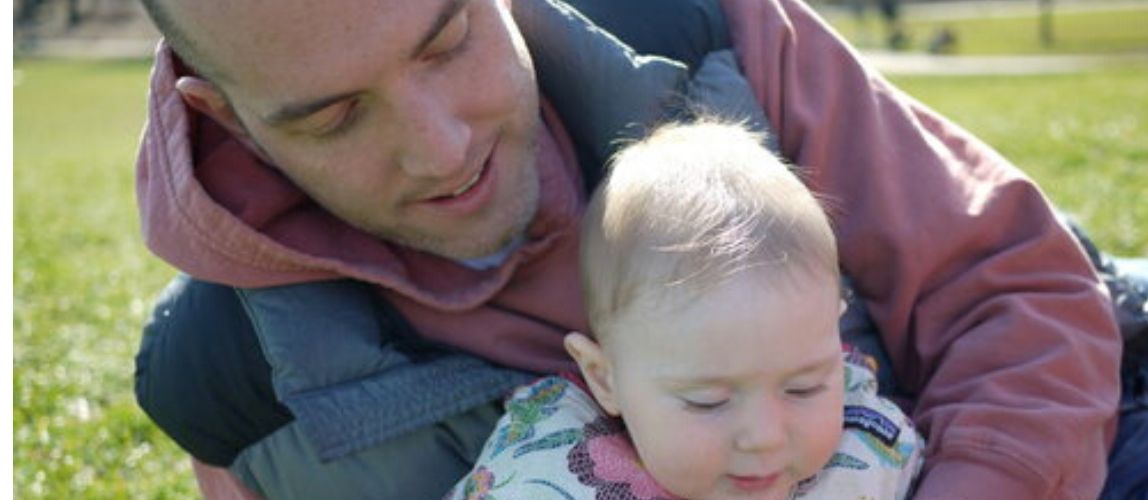More and more, I get asked how Tinkergarten came to be. Like many companies, it started with a pain point for the founders. But in our case, it’s a pretty personal story.
My wife is a career educator. My work has been developing technology products where consumer and education meet. Our dinner conversations are often about education. In addition to our day jobs, we’ve spent a lot of time riffing on what’s broken and how we’d approach changing things within the system or, more likely, by disrupting it. Then we became parents, and things got real.
One Friday in Fall of 2010, over a glass of wine, we hatched an idea. Our first daughter was only a few months old, and, like many first time parents, we started talking about who we hoped this person would become and what we’d do to help. What skills would she need most? What would school provide for her? What would school for her generation even look like? And, most importantly, what could we do with our family time to help ensure that she grew into the happy, healthy, thriving person we’d hope she become?
As the conversation rolled on, we talked about our own childhoods, talking about our most vivid memories and influential moments. A pattern soon emerged. The indelible times involved our family or friends, but more often than not were outdoors and doing something a bit out of the ordinary. We wondered — what could we do to create those kinds of experiences for our daughter? Even better, could we build on such memorable moments and infuse them with learning? If we could ever pull that off, we thought, that that would be the most important gift we could give her.
A little more wine and a spreadsheet later, we bought a domain name. Tinkergarten, our passion project, was born of the hope that we could provide deeply memorable learning moments for kids. But more than that, we saw an opportunity to bring back something that seemed to be lost for this new generation — something that was a most influential part of our own childhoods — free, unstructured time outside. Because, we posited, it’s in that environment where kids open up, push the limits, take risks, tinker, make, and learn.
We were hooked on this idea. We dug up our graduate school reading lists on early childhood development, play and the connection between children and nature. We also reflected on how preoccupied many Americans had become with tracking kids into adult behavior as early as possible, a trend that seemed incongruous with the way we learn the skills that matter most to us — skills like creativity, problem solving, grit and self reliance.
We examined alternative outdoor school models in Scandinavia, and my wife even boondoggled a slot in a UK training program that prepared education leaders to start up forest schools (the UK version of the all-outdoor preschool). While absorbing the best of these models, we started constructing what would become the blueprint for Tinkergarten activities — engaging scenarios through which we could instigate and guide authentic, outdoor play.
When we tested activities, our first goal was to make make sure that kids lost themselves in the moment and had fun. Our daughter, along with our friends’ kids were our guinea pigs, as we mashed-up ideas from constructionism to Steiner’s Waldorf education, with hints of the maker-movement and even user engagement models of gaming.
As we observed the reactions from kids, it was becoming clear we were on to something. When we combined the right ingredients — engaging scenarios to inspire play, a natural setting and passive but well-timed guidance from adults, we got powerful engagement. We further hypothesized that, given the kind of learning techniques underpinning our activities, our daughter and her friends could learn those very skills that we believe will be critical for her generation (and, that neither of us trusted to today’s school system). The real kicker was the impact we saw in our friends. Parents really opened up through these activities and the way they started to spend and think about free time with their kids began to shift.
We started documenting one new activity each weekend, publishing them out to a growing mailing list. Before long, my wife was offering classes, leading families in Brooklyn in digging for worms and stirring up magic petal potions with a twist. Not long after, we were hiring and training new leaders, and Tinkergarten began to spread. What began as a casual conversation, turned into a project, and soon was becoming a micro-movement.
Several years later, and now with three children, my wife and I feel even more strongly about giving kids the space for that unbridled outdoor play that used to be part of the fabric of growing up. And, we’re not alone. We’ve spoken to parents all over the country who agree that something has been lost, and it’s our job to bring it back.
Our side project-turned-obsession has given us the privilege of working with thousands of moms, dads, grandparents, caregivers and children, many of whom have shared stories of significant skill development, growth and joy in their kids through our classes and activities.
That’s why we’re on a mission to find, train and support people in communities everywhere to lead Tinkergarten. This growing workforce of diverse, talented and passionate women and men with flexible schedules, many of whom are parents themselves, are helping families play, learn and transform in communities everywhere — and we’re fully committed to helping them do it.

